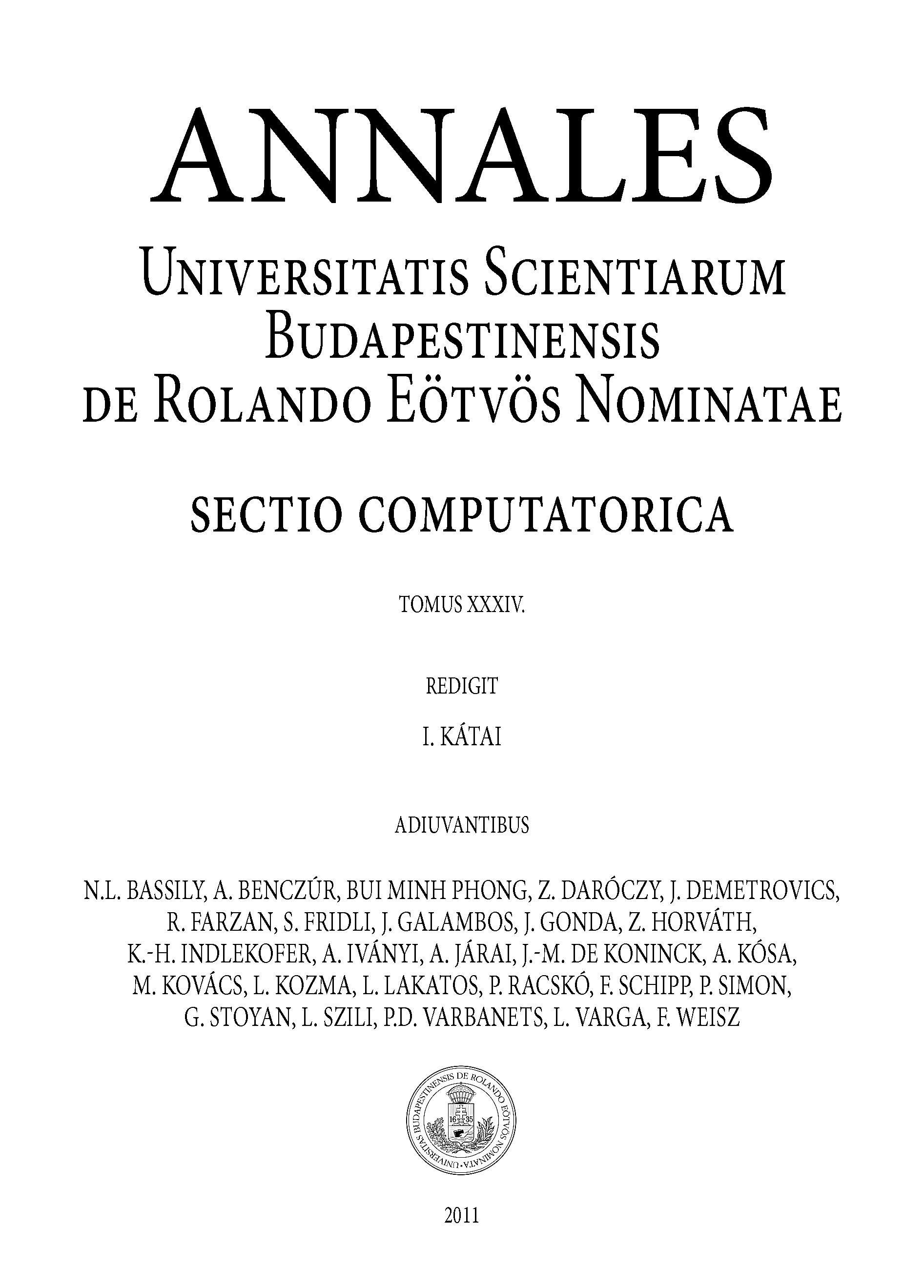https://doi.org/10.71352/ac.34.135
Tauberian theorems with applications to arithmetical semigroups and probabilistic combinatorics
Abstract. In this paper we investigate functions \(Z\) and \(F\) holomorphic in the unit disk \(\{y \in {\Bbb C}: |y| < 1 \}\), which can be represented by \(Z(y)=\sum\limits_{n=0}^{\infty}\gamma(n)y^n=\exp\left(\sum\limits_{m=1}^{\infty}{{\lambda(m)}\over {m}} y^m\right)\) and \(F(y)=\sum\limits_{n=0}^{\infty}f(n)y^n=\exp\left(\sum\limits_{m=1}^{\infty}{{\lambda_f(m)}\over {m}} y^m\right)\), respectively, where \(\lambda(m)\in {\Bbb R}_{\geq 0}\) and \(\lambda_f(m)\in {\Bbb C}\) for all \(m \in {\Bbb N}\). We define a class \({\cal F}\) of functions \(Z\) and characterize the asymptotic behaviour of the quotient \(f(n)/\gamma(n)\) as \(n \rightarrow \infty\) if, for example, \(|\lambda_f|\leq \lambda\). The results are applied to the generating functions of additive arithmetical semigroups and of exp-log schemas in combinatorics. We notice that the definition of the functions \(Z\in {\cal F}\) does not require any analytic continuation of \(Z(y)\) over the boundary \(|y|=1\).
Full text PDF
 ELTE Eötvös Loránd University
ELTE Eötvös Loránd University